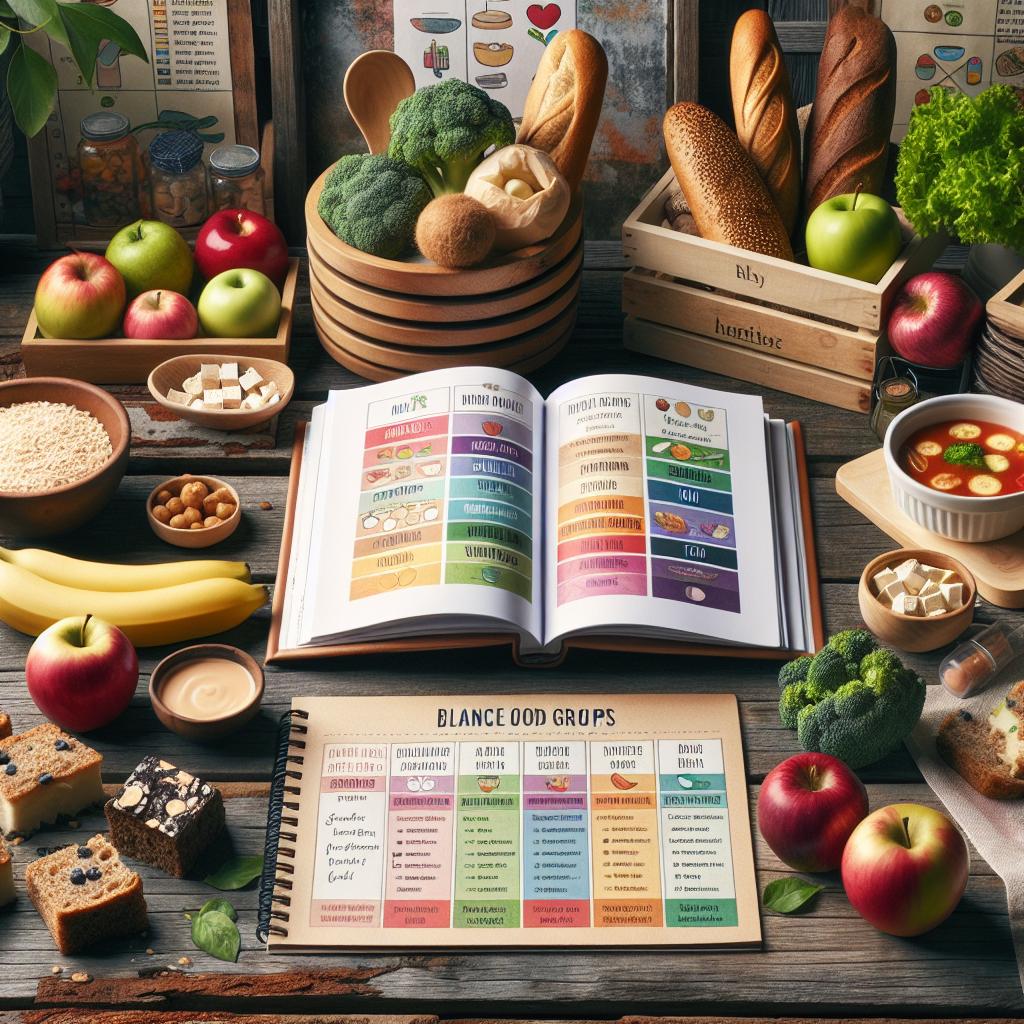Understanding The Importance of Balanced Nutrition in Your Baby’s Growth
It is well documented that proper nutrition during the first years of life is essential for healthy growth and development. This means that every meal counts and that baby meal planning tips and balanced nutrition are crucial for your baby’s wellbeing. In our journey, we learned to focus on creating healthy recipes, ensuring variety and balance in each dish.
Starting With Baby Meal Planning Tips
When we started planning meals for our baby, we considered the nutritional requirements of their growing body. According to the USDA nutrition standards, a balanced meal for a baby should contain:
- A source of protein such as lentils or meats
- Whole grains for energy
- Fruits and vegetables for vitamins and minerals
These nutrients are necessary to support your baby’s growth, cognitive and physical development. To ensure your baby gets all of these, a well-planned meal is integral part of daily routine.
Our Journey Towards Creating Healthy Recipes
One thing we discovered early on is the importance of homemade meals in providing balanced nutrition. Homemade meals give you control over the ingredients and cooking methods used. We have shared some of our favorite homemade baby food recipes that are not only nutritious but also flavorsome.
Ensuring Variety in the Diet
While planning meals, we always prioritized variety. Different foods provide different types of nutrients, so ensuring variety in meals is vital in meeting your baby’s nutritional needs.
The meal plans provided by Unlock Food and Happy Family Organics are great resources that helped us understand how to introduce variety into our baby’s diet using age-appropriate food options.
Remembering To Consider Postpartum Nutrition
It’s also important to remember that meal planning isn’t just about the baby. Especially for breastfeeding moms, postpartum nutrition is something to consider. We’ve shared our thoughts on handling the transition to parenthood as well as the importance of maternal nutrition on our blog.
Lastly, we must not forget that making healthy choices now will set the tone for your child’s eating habits in the future.
Introducing Nutritious Foods
An essential aspect of baby meal planning is the introduction of new nutritious food items while keeping the baby’s preferences in mind. Every baby is unique and will have different food tastes. As noted by the guides provided by The National Institute on Aging and the American Academy of Pediatrics, it’s important to introduce a variety of foods to your baby.
Evaluating Your Baby’s Response to Meals
While introducing new foods, it is also critical to be watchful of any allergic reactions. The first introductions can be both exciting and a little nerve-wracking. Always remember, your pediatrician is there to guide you through any difficulty during this, or any other phase of the transition.
Importance of a Balanced Diet from the Start
As your baby starts eating solids, focusing on balanced nutrition becomes even more important. The article ‘Baby Feeding Schedules and Sample Meal Plans’ available on Yummy Toddler Food and Beech-Nut’s blog is a great source of information on providing a balanced diet for your growing baby.
Baby Meal Planning Tips: Keeping It Simple
A good tip is to remember not to overcomplicate things. Keep meals simple and focus on the nutrient content. Babies don’t really need meals laden with numerous ingredients. Often, simplicity is the key to getting babies to eat well. Simple, fresh ingredients go a long way in ensuring that they get used to healthy eating habits from a young age.
A Gradual Introduction to Different Textures
As the baby grows older, you can gradually introduce different textures into their meals. Start with purees, then once your baby is comfortable with swallowing, slowly begin introducing semi-solids by mashing up the food. Eventually, you can ease them into eating solids by cutting up foods into tiny pieces.
Establishing Regular Eating Times
Establishing set eating times can also help guide your little one into a routine. Regular meal and snack times are not just good for digestion but also contribute to the development of a healthy feeding schedule.
Importance of Hydration
Keep in mind, alongside planning meals, hydration is equally important. Exclusively breastfed babies usually receive adequate hydration from breast milk. However, babies starting to eat solid foods need extra fluids. Do ensure to include enough liquids like water, breast milk, or formula in your baby’s daily diet.
As they say, the best start in life begins with good nutrition, and planning your baby’s meals is a step in the right direction. The journey may be overwhelming and challenging at times, but rest assured, it is definitely worth it. Happy meal planning!

